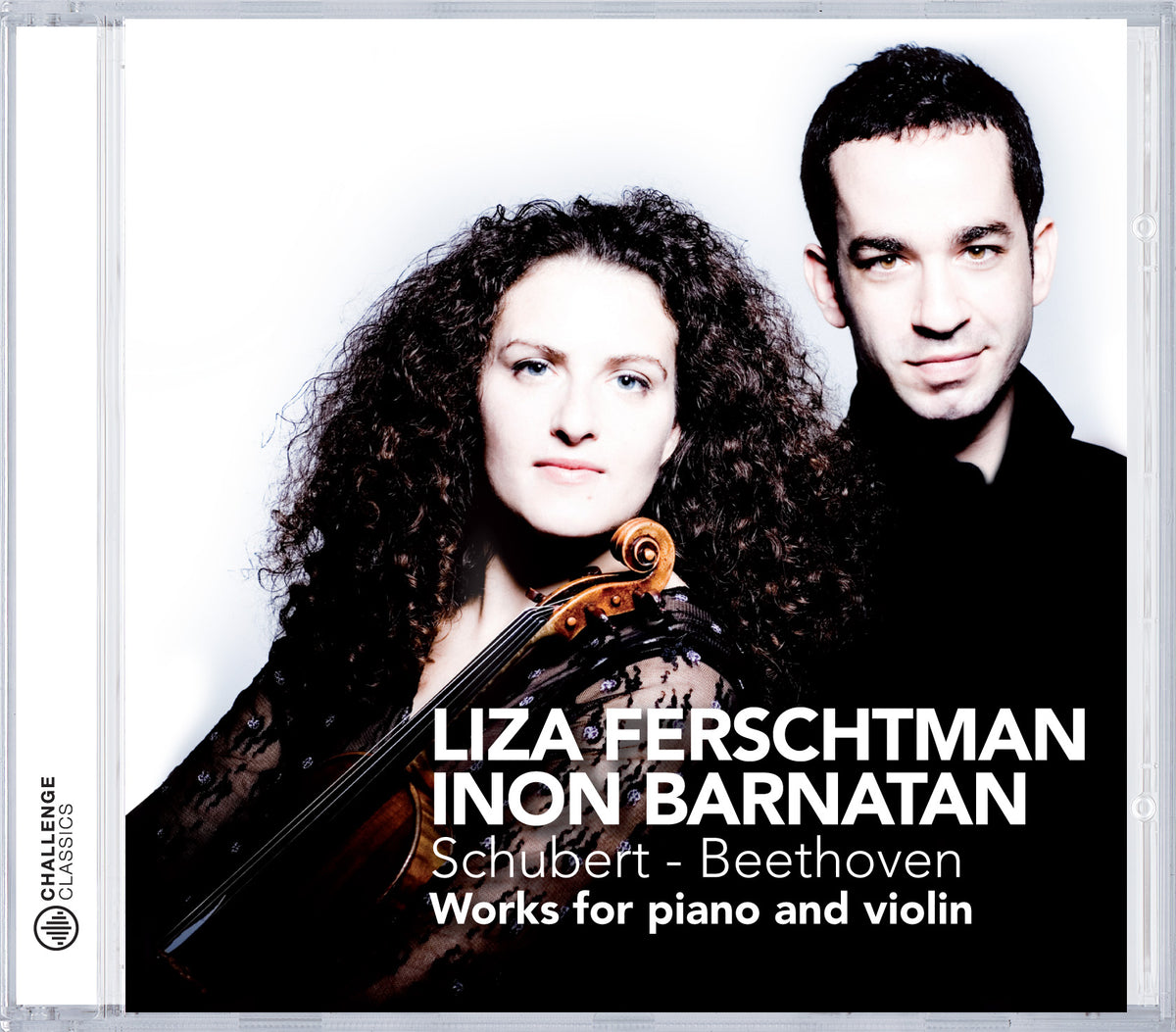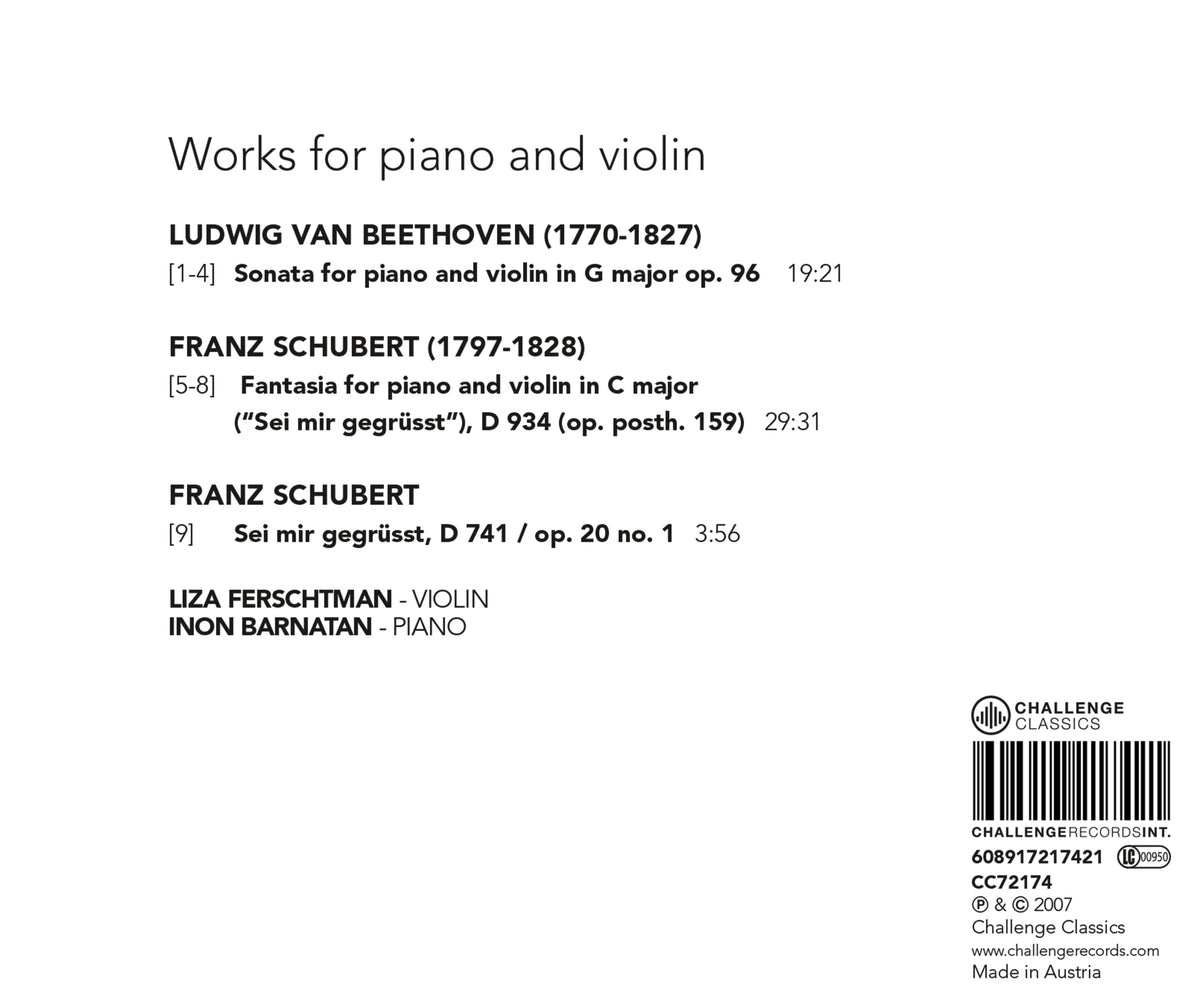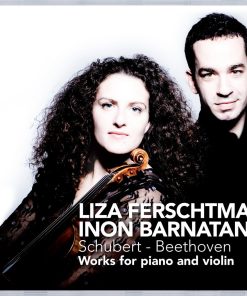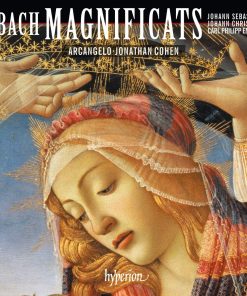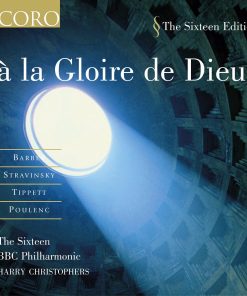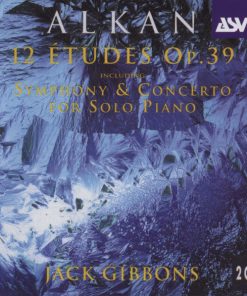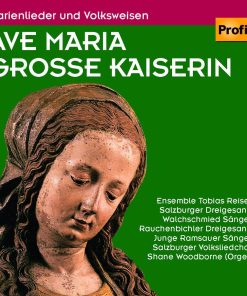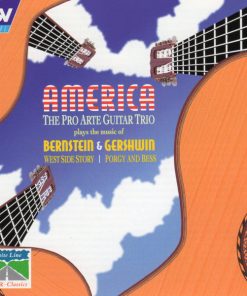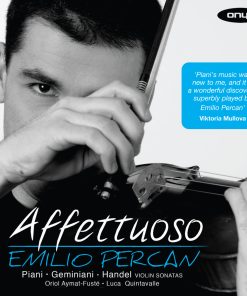SCHUBERT & BEETHOVEN: WORKS FOR VIOLIN AND PIANO – LIZA FERSCHTMAN & INON BARNATAN CHALLENGE
$ 2,99 $ 1,79

This recording presents two great masterpieces and a song. At first sight they have not so much in common, one is a sonata, one a fantasy, one a song. One is by a composer known in general for his boisterous music, the other two by a composer more known for his melancholy. But the content of these two masterpieces (the fantasy takes its main theme from the song) show how many parallels there were between this surprisingly poetic, lyrical style of Beethoven to that of Schubert.
Though there is a big difference between the two composers, there is a certain quality, depth and emotion coming through serenity and lyricism, that these pieces share. Both are mature works: Beethovens the 10th and last of his sonatas, Schuberts Fantasy written in the last year of his life.
Mozart and Haydn had written sonatas for piano and violin before Beethoven, in which the piano is the dominating instrument, the violin playing a subordinate role. With his violin and cello sonatas, Beethoven has changed the nature of the relationship between the instruments, and elevated them to a new art form in which the bowed instruments are in virtuoso dialogue with the piano.

01. Sonata for piano and violin in G major op. 96: Allegro moderato 11:23
02. Sonata for piano and violin in G major op. 96: Adagio espressivo 05:49
03. Sonata for piano and violin in G major op. 96: Scherzo. Allegro 01:58
04. Sonata for piano and violin in G major op. 96: Poco Allegretto 08:32
05. ‘Fantasia for piano and violin in C major (”Sei mir gegrüsst”), D 934 (op. Posth. 159)’: Andante molto 03:50
06. ‘Fantasia for piano and violin in C major (”Sei mir gegrüsst”), D 934 (op. Posth. 159)’: Allegretto 05:33
07. ‘Fantasia for piano and violin in C major (”Sei mir gegrüsst”), D 934 (op. Posth. 159)’: Andantino 11:28
08. ‘Fantasia for piano and violin in C major (”Sei mir gegrüsst”), D 934 (op. Posth. 159)’: Allegro vivace 04:38
09. ‘Sei mir gegrüsst, D 741 / op. 20 no. 1’ 03:56
Fast Shipping and Professional Packing
Due to our longstanding partnership with UPS FedEx DHL and other leading international carriers, we are able to provide a range of shipping options. Our warehouse staff are highly trained to pack your goods exactly according to the specifications that we supply. Your goods will undergo a thorough examination and will be safely packaged prior to being sent out. Everyday we deliver hundreds of packages to our customers from all over the world. This is an indication of our dedication to being the largest online retailer worldwide. Warehouses and distribution centers can be located in Europe as well as the USA.
Orders with more than 1 item are assigned processing periods for each item.
Before shipment, all ordered products will be thoroughly inspected. Today, most orders will be shipped within 48 hours. The estimated delivery time is between 3-7 days.
Returns
The stock is constantly changing. It's not entirely managed by us since we are involved with multiple parties such as the factory and our storage. The actual stock can fluctuate at any time. Please understand it may happen that your order will be out of stock when the order is placed.
Our policy is valid for 30 days. If you haven't received your product within 30 days, we're not able to issue either a return or exchange.
You are able to return a product if it is unused and in the same condition when you received it. It must also still remain in the original packaging.
Related products
MUSIC CD
